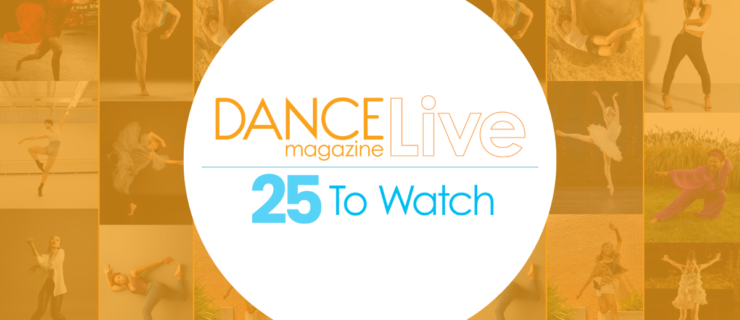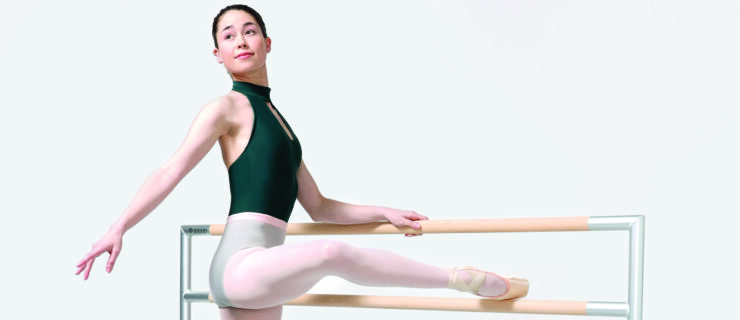Attitude Adjustments
DS asked three competition judges and choreographers how to avoid the faux pas they see most and how to deal with slipups when they happen.
Problem: Your body language is sending the wrong message.
Solution:
We all get tired. Leaning against the barre, crossing your arms or rolling your eyes are common ways of expressing exhaustion. But Nicole Foisy, dance program director for the United Spirit Association, explains that physical signals of fatigue often come across as disinterest. “You look lazy or lethargic, and it’s not necessarily because you are lazy,” she says. Holding your hands behind your back while the instructor is demonstrating is a good way to show respectful interest. “Be an active learner,” says Cindy Smith, competition judge and dance teacher at Sandpoint High School in Sandpoint, ID. “Make eye contact with me, and nod your head to show you understand.”
Problem: You’re late.
Solution:
Sometimes you can’t help being late—your ride is delayed, you have a family emergency or your alarm clock doesn’t go off. Smith realizes that these things happen. As soon as you arrive, however, jump right into rehearsal with focus and commitment. “Don’t make excuses—talking wastes more time,” Smith says. If there’s a punishment for being late (running laps or doing pushups, for example), take it without complaint. Later, during a break, apologize to your teacher and offer to stay after practice to help clean up. Show that you don’t take your transgression lightly.
Problem: You don’t remember the choreography.
Solution:
The best solution is prevention. “Write out notes about the choreo right after you learn it, or meet with a friend to review,” says Bea Arnold, a Southern California choreographer and competition judge. But if you suddenly can’t remember yesterday’s eight counts, don’t make a scene. “It’s how you respond to not remembering that matters,” Smith says. “Don’t walk off the floor. Position yourself in the back of class and observe the other dancers, so you can pick up the movement again.”
Problem: Your friends are chatterboxes.
Solution:
You’re in rehearsal for your group routine, doing your thing, when one of your talkative friends starts whispering to you. Suddenly, the teacher is yelling at you for being disruptive. What can you do? Dealing with this scenario can be tricky, Foisy says. Your best bet? Enlist help. “Let your teacher know you’ve had a hard time focusing,” she says. She can set up a warm-up formation in which you don’t stand next to your chatty friends and also not place you next to those talkative buddies in formations. With the coach’s help, you can avoid distraction without having to worry about offending your friends.
Problem: You’re marking the steps.
Solution:
In convention classes, space can be tight. Just because you don’t have room to do all the steps, however, doesn’t mean you can’t be enthusiastic and attentive. Use your upper body and head to show that you have the dynamics of the movement. “If you have to, take out the bigger elements—the turns, kicks and leaps,” Arnold says. “But you’ve got to do everything else. Never be sloppy or lazy about your work.”
Problem: You feel picked on, so you’re dancing poorly.
Solution:
It’s a tricky cycle: When you feel as though you’ve received a lot of critiques, your confidence often goes down. Then your smile fades and your energy vanishes, and as a result, you receive even more criticism. Foisy advises her students to think of criticism in a positive light. “You want somebody to care about you,” she says. “Your teacher knows how to help you improve.” However, if a teacher or judge criticizes without explaining how to fix a problem, Foisy suggests approaching her after class. “A good teacher will break down the skill for you,” she says.
Problem: You’re not contributing to group activities.
Solution:
When you skip out on obligations such as fundraising or cleaning up after rehearsal—even if you have a good excuse—you’re sending a signal to your studio that you don’t care. “Don’t expect someone else to put in all the hard work to make something great possible for you,” Foisy says. If you can’t attend a fundraiser, or if you have to leave practice early and can’t help with cleanup, make sure you volunteer to help out in another way. Selling candy bars and sweeping the floor are not glamorous parts of being on a comp team—but in some ways, they’re the most important.
“Dance is secondary in a group situation,” Smith says. “It’s about teaching young people how to have integrity and be successful.” Remember that you’re learning valuable life lessons in the classroom. “Feel from your heart: I’m doing this because I’m helping my team,” Smith says. “This is about becoming a classy young person.”
Easy Etiquette
You’ll never go wrong following these basic guidelines.
- No gum chewing in the dance space. It’s not just rude—it’s also a choking hazard.
- Wear dance-specific shoes (or no shoes) to help preserve the floor. The wrong shoes can make the floor slick or dirty.
- Keep food in your bag, enclosed in a separate container. Food smells can be distracting, and spills can ruin the dance floor.
- Unless your instructor specifies otherwise, secure your hair up and away from your face, using bobby pins and headbands for bangs and short layers. (Your pirouettes will thank you!) Also, leave the jewelry at home—it’s dangerous.
- Wear appropriate attire. Don’t wear your hip-hop sweats to ballet class, and vice versa, no matter how busy your day gets. Keep an emergency bag with spare dance clothes so you’ll always be prepared.
- Listen! Be sure to take all corrections and apply them carefully. Teachers don’t want to make the same comments over and over.
- Warm yourself up beforehand as much as possible. Do some jumping jacks and be sure to stretch your hamstrings, calves, hips and back, in particular—you’ll get more out of your class.
- When you finish a rehearsal or class, a mutual acknowledgment of effort is never a bad idea. Whether it’s a verbal thank you, a curtsy or simply clapping, it’s a nice conclusion for instructors and students alike.
- At competitions, remember to clap for all the teams in your division. It’s also a polite gesture to give a standing ovation for the first-place team. Everyone—judges included—notices good manners and sportsmanship.
Photo: courtesy of United Spirit Association



